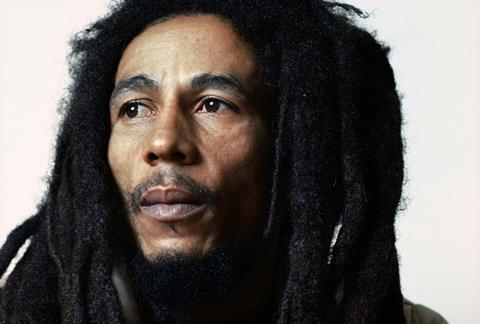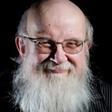The reggae superstar and populariser of Rastafarianism became a Christian shortly before his death in 1981. Tony Cummings reports

Yesterday marked 78 years since Bob Marley was born. Four decades after his death, the star is revered and remembered by millions.
In the much-praised book Bob Marley: The Untold Story author Chris Selewicz wrote, “The late Bob Marley continues to personify Jamaica, embodying the soul of what the world knows as the odd, apparently paradoxical religion of Rastafari, the only faith uncritically accepted globally as an integral aspect of popular music.”
Unfortunately, one story that isn’t told in Selewicz’ book is Marley’s late rejection of Rastafari and his conversion to Christianity.
Rastafari religion
Rastafari originated among the poor and oppressed Afro-Jamaican communities in 1930s Jamaica. Its Afrocentric ideology was largely a reaction against Jamaica’s then-dominated British colonial culture and the legalistic demands of many Protestant churches. Rasta beliefs are based on a selective interpretation of the Bible to encompass a single God, referred to as Jah, who is deemed to reside within each individual.
Beginning in 1930 Jamaican preachers began to describe the coronation of King Haile Selassie of Ethiopia as the fulfilment of prophesies found in Revelation (5:2-5; 19:16), Daniel (7:3) and Psalms (68:31).
Disenfranchised and woefully oppressed Jamaicans began to see themselves as supporting the “black king of Ethiopia” and not the “white king of England.” In 1935, Jamaican preacher Leonard Howell published the tract The Promised Key which explained that Emperor Haile Selassie (Ras Tafari) was the Messiah, that Black people were the chosen people, and they would soon be repatriated to Ethiopia and experience political and economic prosperity.
The tract is the founding document of Rastafarian belief and marks the move from seeing Haile Selassie as merely prophetic to “the divine Messiah.”
Soon more and more people were believing that Selassie was in fact Jah incarnate, that he could be worshipped with the “sacrament” of marijuana and that the wearing of hair in dreadlocks - an appropriation of a scripture (Numbers 6:5) relating to hair-cutting – was a demonstration of separation from “Babylon”.
Musical career
Nesta Robert Marley was born to 18-year-old Cedella and a 59-year-old white Jamaican father in 1945. He was brought up in poverty but in the most beautiful parts of Jamaica, a country boy watching the ebb and flow of nature. When Bob was 10 his father died. He subsequently moved to Kingston’s ghetto Trench Town. By his teens he was being taught musical skills and Rasta spiritual enlightenment by Joe Higgs, who was one of Jamaica’s first recording stars.
With Bunny Livingstone and Peter Tosh, Bob formed a ragamuffin trio the Wailers. The Wailers’ first album, 1965’s The Wailing Wailers, established them as Jamaica’s top group and by the 70s they came to the attention of white Jamaican recording executive Chris Blackwell, who had launched Island Records and had the marketing expertise to steer them and reggae music itself into monumental album sales and touring success. If there was one recording that personified Marley’s wholesale adherence to the teachings of Rastafarianism and his rejection of Christianity it was 1973’s ‘Get Up Stand Up’, with its telling verse “We sick an’ tired of-a your ism-skism game / Dyin’ ‘n’ goin’ to heaven in-a Jesus’ name / We know when we understand / Almighty God is a living man.”
The man Marley referred to was Haile Selassie, Emperor of Ethiopia. However, Bob’s conviction of the truth of Rastafarian teaching took a severe blow in 1976 when Emperor Selassie died. From that point on Bob’s lyrics took a somewhat less hectoring tone. They became spokespersons not only for black consciousness but for the need for universal love to challenge and overcome the political and social forces of violence and hatred. In 1980 the European tour of Bob Marley And The Wailers played to the largest audiences any music artist had ever experienced there.
Cancer
But while in Europe Marley received devastating news. Three years earlier he had been diagnosed with a malignant skin cancer on his toe. The doctors had suggested his toe be amputated but the singer had turned that suggestion down. Then on 21 September 1980 he learned that the cancer had spread to his brain. He flew to various places in a desperate effort to find healing, including an unhappy spell at a clinic in Germany. When no cure was found, he considered flying back to Jamaica to die but finally settled for a trip to Miami.
Judy Mowatt, as a member of female trio I-Three (Mowatt, Rita Marley and Marcia Griffiths) of Bob’s recording and touring entourage since recording Jah Live and the subsequent Natty Dread album, had been working with Bob for years. She told Cross Rhythms journalist and broadcaster Mike Rimmer, “When Bob was on his dying bed, his wife Rita called me on the phone and said to me that Bob was in such excruciating pain and he stretched out his hand and said, ‘Jesus take me.’ I was wondering to myself, why is it that Bob said ‘Jesus’ and not ‘Selassie’? But I never said it to anyone. Then I met a friend of mine and he said his sister, who is a Christian, was a nurse at the hospital before he [Bob] passed on and she led him to the Lord Jesus Christ. So when Rita saw him saying ‘Jesus take me’, he had already received the Lord Jesus Christ in his life.”
In late 1979 Marley sought membership within the Ethiopian Orthodox Church, the state church of Ethiopia. Archbishop Abuna Yesehaq was convinced of Marley’s conversion and baptised him into the Ethiopian Orthodox Church, giving him the name Berhane Selassie on 4 November 1980. Six months later on 11 May 1981 the reggae superstar died and received an Ethiopian Orthodox funeral.
Judy Mowatt told Rimmer that Marley’s Christian conversion was something that record companies, authors and perpetrators of the Marley myth as a passionate Rasta spokesperson wanted kept quiet.
Mowatt told Rimmer, “Nobody wants to promote that [truth about Bob’s conversion]. In Jamaica I said it on a popular television programme and a Rasta man met me and asked me why did I have to say that? I said, ‘Because it’s the truth!’ But [that man] never wanted me to reveal that and I think that anybody doesn’t want that to be revealed.”



































No comments yet